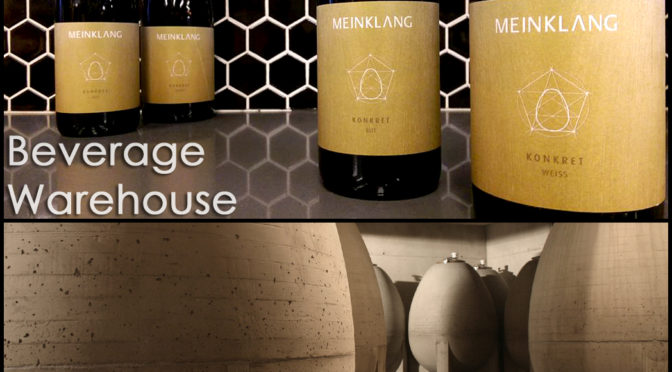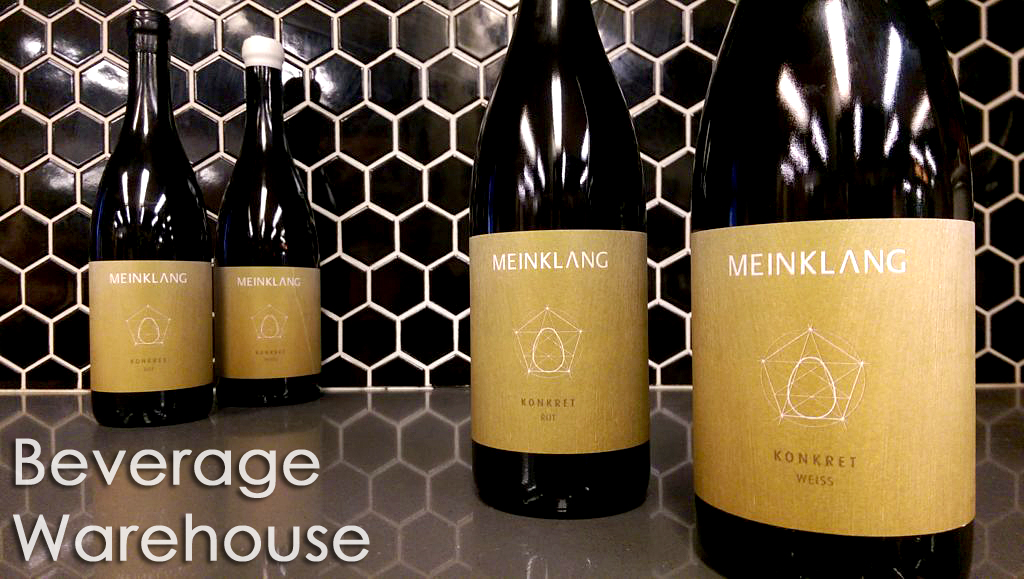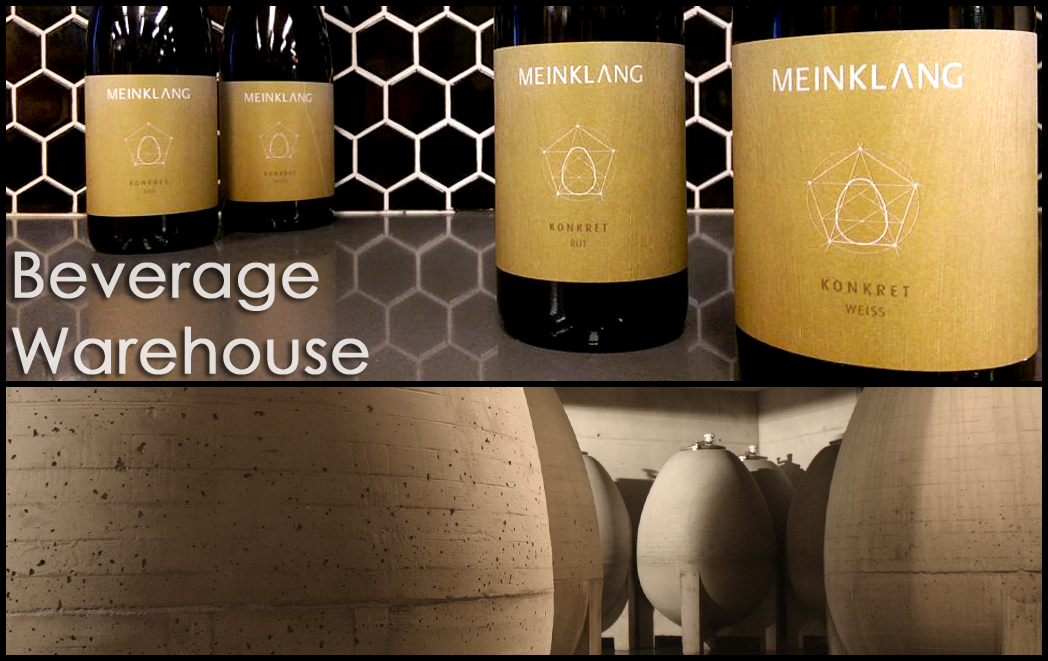We are most delighted to introduce Meinklang Konkret Weiss (White) & Meinklang Konkret Rot (Red) to our ever growing natural/native wine section.
Our natural/native wine section is an abundant playground of unique and delicious wine, consisting of:
> Natural Wine – Any wine (red, white, rosé, orange, sparkling, etc.) made with minimal human and mechanical intervention, native yeast, hand harvested, and as un-fooled around with as possible.
> Orange Wine – Extended skin contact white wine resulting in a more complex, fuller bodied, increasingly interesting white wine with a darker hue (almost orange).
> Pétillant Naturel / Pét-Nat Wine – Natural sparkling wine made without adding sugar or yeast to achieve bubbles, often using méthode ancestrale.
The winemakers at Meinklang have mastered the art of gently guiding their grapes and terroir into making incredible wine. Instead of the winemakers muffling the voice of grapes and terroir, they naturally coax the wine into producing a symphony for all your senses.
Meinklang wines grace many of the finest Vermont wine lists for good reason – they are craveable and responsibly crafted. Vermont definitely has an affinity for our European alpine cousins and these wines will only become more popular as more people drink Meinklang, expand their palate, and enjoy natural expressions of wine.
- Meinklang Konkret Rot | Natural red wine | $31.99
- Meinklang Konkret Weiss | Natural red wine | $31.99
Konkret Rot / Red
- Region: Austria>Burgenland>Neusiedlersee
- Soil profile: Sandy loam soils. This site’s soils are locally also described as cool soils.
- Character: deep, elegant, subtle
- Grape varieties: 90% Sankt Laurent, 10% Blaufränkisch
- Food pairings: Roasted beetroot with walnut sour
cream and chard salad - Alcohol: 13.5%vol
- Filtration: unfiltered
- Additives: none (vegan)
- Certified: Demeter & Austria Bio Garantie
Konkret Weiss / White
- Region: Austria>Burgenland>Neusiedlersee
- Soil profile: Sandy loam soils. This site’s soils are locally also
described as cool soils. - Character: deep, elegant, subtle
- Grape varieties: Field blend of Red, Yellow, & Gewürztraminer
- Skin contact: 21 days
- Food pairings: Confit monkfish in orange oil served with chorizo sauce, sweet peppers and a lemon and black pepper risotto
- Alcohol: 12.5%vol
- Filtration: unfiltered
- Additives: none (vegan)
- Certified: Demeter & Austria Bio Garantie
We could say so much about Meinklang, we suggest you grab a bottle, pour yourself a glass, and spend some time exploring their website to learn about their concrete shaped eggs, family and farm, biodynamic and vegan friendly practices, Demeter certification, and so much more!
Below is a sample of what you’ll find on their site:
Q: Why do some of your wines and juices contain small crystals at the bottom of the bottles?
A: These are tartrate crystals which form from the wine’s acid and settle in the bottom of the bottle. They can be small individual crystals or larger clusters. Tartrate crystals are a sign of natural maturation, since the grape juice is not stabilised chemically with metatartaric acid or physically by being cooled down to a very low temperature. That is why we actually consider these completely harmless tartrate crystals a sign of quality.
Q: Are your wines vegan-friendly?
A: Absolutely! Insofar as possible, we make our wines without using additives and we also completely avoid fining agents derived from animal products such as egg white, fish bladder or gelatine. Firstly, that is because we value the wine’s natural character and believe that animal products have no place in wine. Secondly, these substances often stem from the waste of intensive animal farming, which we do not wish to support at all.
Q: Why are some of your wines orange in color?
A: This is because we leave our white wines to macerate on the skins during fermentation, i.e. the wine is fermented together with the grape skins, just like a red wine would be. This is the most traditional method of white wine making, which helps the wine to remain stable without additives. Since we also add very little sulphur, if any at all, the wine takes on a slightly deeper colour. These traditional and natural wines offer a completely new spectrum of aromas and therefore make wonderfully complex food wines.
More online at: meinklang.at








